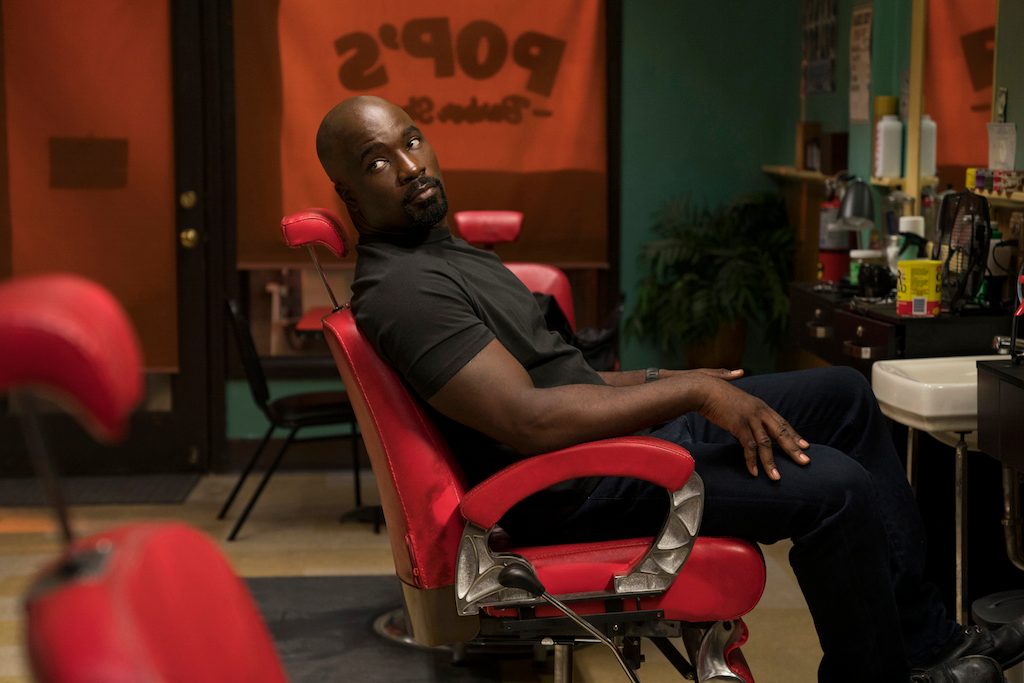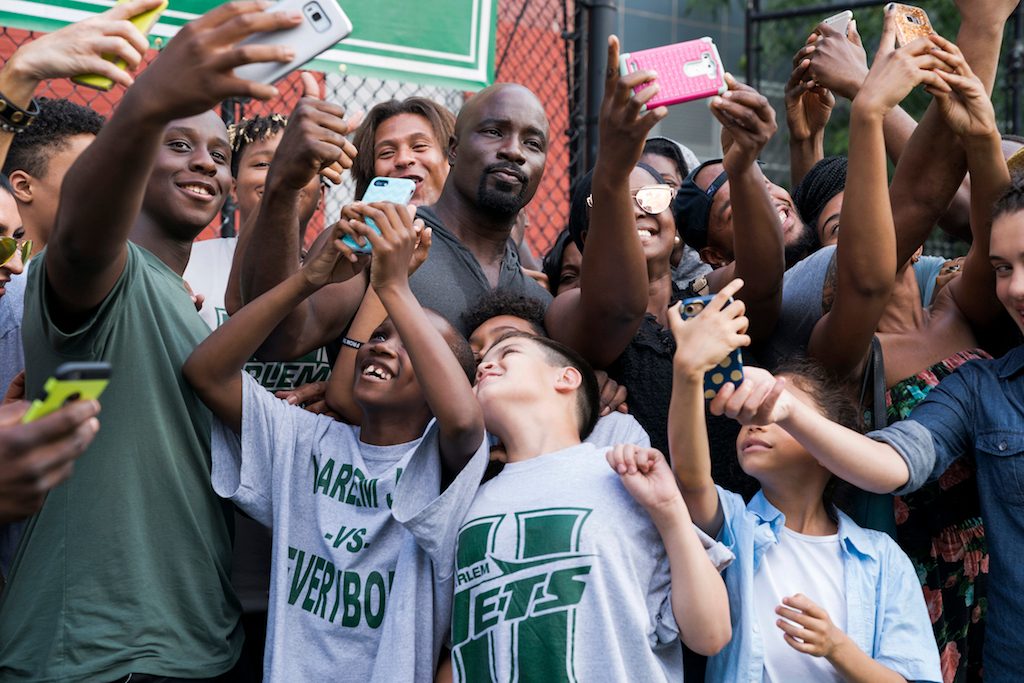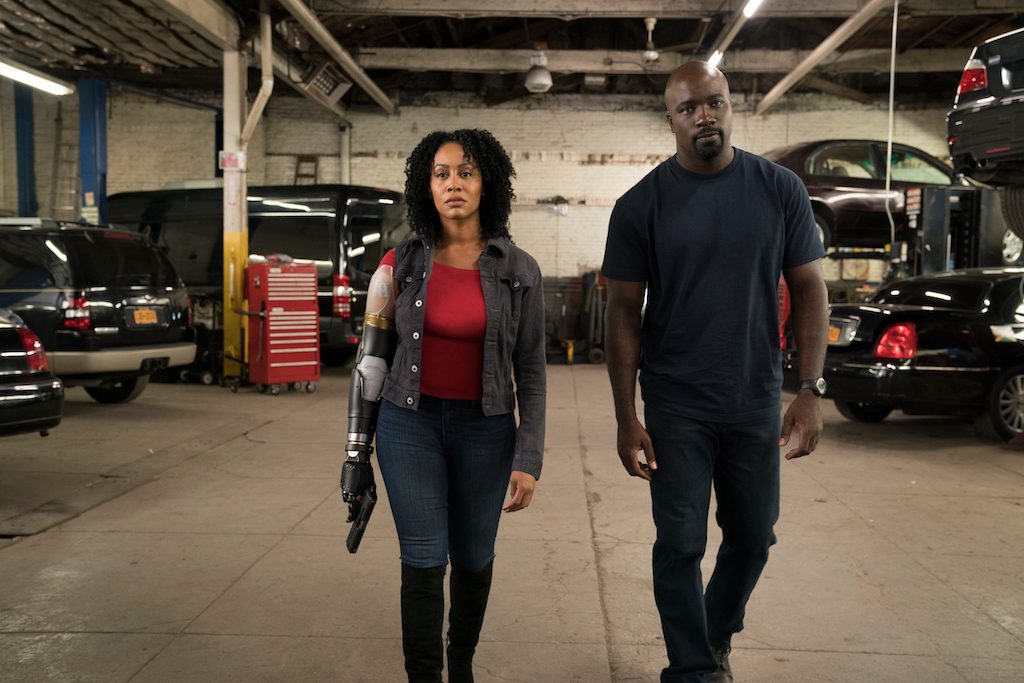SUMMARY
This is AI generated summarization, which may have errors. For context, always refer to the full article.

How badass was Cottonmouth? Mahershala Ali’s portrayal of last season’s main antagonist was so potent, the vacuum left in his wake is still palpable here in season 2. Mariah Dillard (Alfre Woodard), Shades (Theo Rossi), and the new big bad Bushmaster (Mustafa Shakir) can rampage through Harlem all they want, but the question will always be: but are they as good as Cottonmouth?
The answer is, of course not.
Every superhero is only as good as their villain. Yeah, it’s a cliché, but it’s especially true for Luke Cage (Mike Colter). See, Luke Cage might be bulletproof and possess superhuman strength, but most of his antagonists are just street-level thugs. We can only watch Luke get shot without getting injured so many times before it starts getting monotonous. Cottonmouth wasn’t super-powered, but he brought an air of menace and intensity that could cut right through Luke’s bulletproof veneer. How could you possibly follow that up?
Most movies or series would either bring a succession of increasingly bigger baddies (The Avengers) or introduce conflict from within the hero’s psyche (Iron Man 2). Luke Cage tries to do both of these.
It’s compelling at times, but the myriad of subplots and conflicts can sometimes bog down an otherwise great season.
Season 2 catches up with Luke somewhat relishing his new role as Harlem’s defender, a status that brings some degree of celebrity. Fans ask for selfies wherever he goes. Pop’s Barber Shop, Luke’s current base of operations, has become a pilgrimage site for admirers. There’s even a Nike endorsement in the works and a “Harlem’s Hero” app which lets people keep track of Luke’s location.

Mariah Dillard and Shades are also undergoing a bit of a change. Mariah is looking to go legit after the death — at her own hands — of her cousin Cottonmouth. Thanks to insider intel coming from her accountant Piranha Jones, Mariah learns about a planned acquisition of Atreus Plastics by a larger company. By buying shares worth $20 million, she could potentially become a billionaire after the acquisition.
There’s just one problem: where to get that 20 mil. Mariah decides to sell her gun-running business to fund the purchase. Shades, who still clings to vestiges of his criminal background, wants Mariah to hold on to the gun business and flip her Basquiat instead.
The Jean-Michel Basquiat painting “Two Kings” occupies pride of place in the office of Harlem’s Paradise. Towards the end of season 1, Mariah replaces the iconic Barron Claiborne photo of the Notorious B.I.G., which belonged to her cousin, with the Basquiat painting.
The works of art that hang in the office are almost characters unto themselves. One of my favorite visual devices in both seasons was the way the camera would position the current boss of Harlem’s Paradise under the crowns that were prominent in the pieces. The Basquiat painting symbolizes Mariah’s increased power over Harlem, and as such, refuses to sell it.
If Mariah thought she could escape her family’s criminal past (she even refuses to acknowledge her criminal family name Stokes), tough luck. The Stylers, a Jamaican street gang based in Brooklyn, are looking to expand into Harlem. At the forefront of the gang’s expansion efforts is Bushmaster. Originally from Brooklyn, Bushmaster grew up in Kingston. Bushmaster brings two things back with him: a stash of Nightshade, which gives him superhuman abilities, and a hatred for the Stokes family.
Bushmaster and the Stylers disrupt Mariah’s attempts to go legit through acts that are straight out of a drug cartel’s terror playbook. They impale the decapitated heads of Mariah’s allies during the opening of her community center. A few episodes later, Mariah returns the favor by killing everyone inside Gwen’s, the restaurant owned by Bushmaster’s aunt and uncle.
Luke Cage is caught in the middle of this conflict, which presents him with an obvious dilemma. He wants Mariah and Shades to go down, but he can’t let Bushmaster run amok either. To complicate matters, he has to work under the increased scrutiny that his celebrity status brings. He also has to deal with his own anger issues and his disintegrating relationship with Claire Temple (Rosario Dawson, who always brings a sense of sanity whenever she pops up in a Marvel Netflix show).
Dueling criminal organizations, anger issues, relationship problems… all of this is a lot for a single season to carry. And that’s not evening mentioning the other subplots that the show introduces. None of it is filler per se; those subplots, such as Luke’s relationship with his father and Mariah’s own complicated relationship with her daughter, are pretty compelling. But you definitely get the impression the show is being stretched out to fit thirteen episodes.

Luke Cage would have fallen apart if it weren’t for Misty Knight. The newly-reinstated detective is the moral core of the show; the solid bedrock to Luke’s overflowing lava. If Luke is caught between a rock and a hard place, Misty has it ten times worse. She has to deal with the loss of her arm, the NYPD’s growing distrust of Luke, the Styler’s campaign of terror, and Mariah’s criminal dealings seemingly all at once. But by putting her at the center of all this, we have a narrative glue that keeps the show together
And just like season 1, which abruptly killed off Cottonmouth (and then replaced him with an inferior villain in Diamondback), season 2 gives Bushmaster a sudden boot. I get why this had to be done — the latter episodes had to focus on Mariah’s relapse into crime. But this still doesn’t do the Bushmaster character any favors.
By depriving Bushmaster of a satisfying character arc, he becomes a mere plot device to move Mariah’s own story forward. It’s a shame because there were moments when Bushmaster almost reaches Erik Killmonger status: a character that is both menacing and sympathetic.
Bushmaster doesn’t die. He flies back to Jamaica after his body gets ravaged by the deadly side-effects of Nightshade. Even Luke has to deal with his own inner corruption. To fight Mariah, he has to wheel and deal with the different crime organizations circling Harlem. Luke stops being Switzerland, and more like the United States: a self-appointed peacekeeper with questionable methods.
The show seems to ask: is corrupting oneself an acceptable cost for fighting corruption? Luke won’t admit it, but for him, the answer is yes. After Mariah’s eventual fall, Luke somehow inherits Harlem’s Paradise. Dressed in a fine suit instead of his bullet-ridden hoodie, he claims that the club’s famous (or infamous) balcony is the perfect vantage point for monitoring the criminal goings-on in Harlem.
But Luke needs to watch over himself above everything else. Because if you gaze into the abyss, the abyss gazes back into you. – Rappler.com
Add a comment
How does this make you feel?
There are no comments yet. Add your comment to start the conversation.